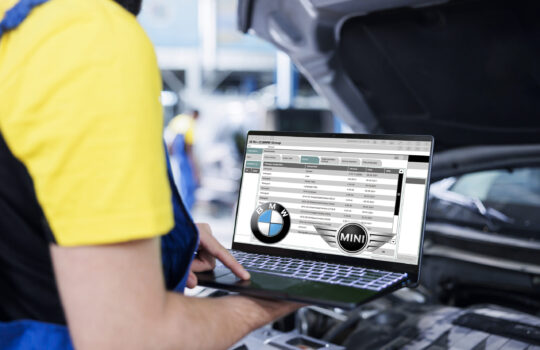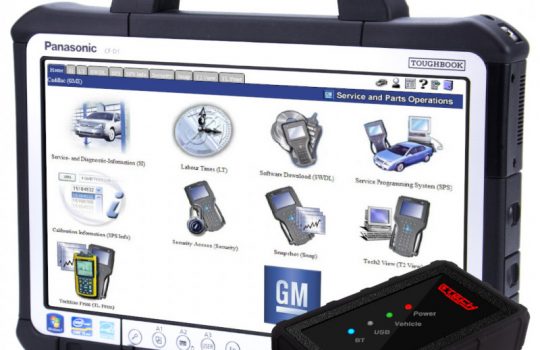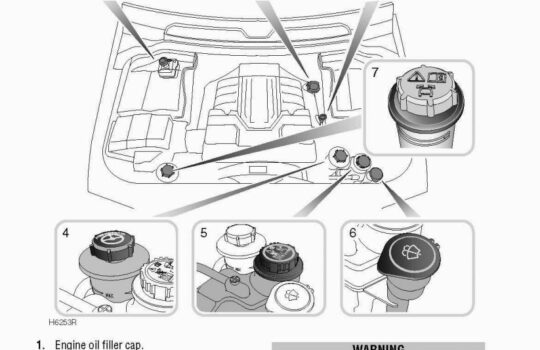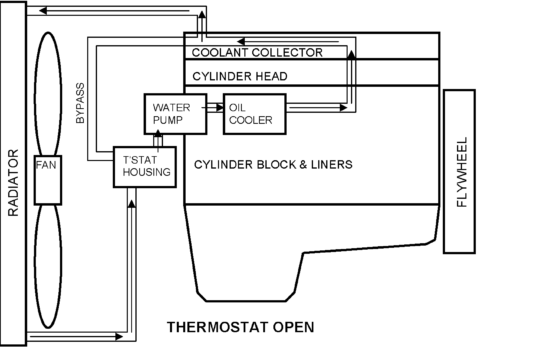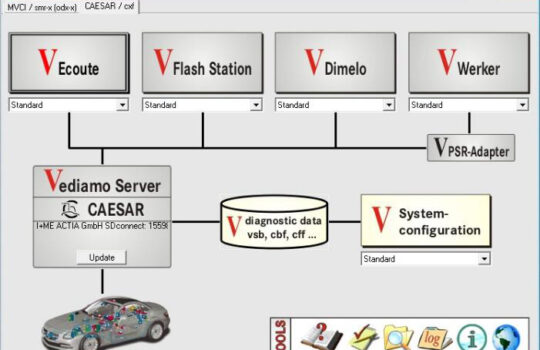Overcoming Mercedes-Benz Diagnostic Challenges | Techroute66
September 10, 2024 2024-09-10 8:42Overcoming Mercedes-Benz Diagnostic Challenges | Techroute66
Overcoming Mercedes-Benz Diagnostic Challenges | Techroute66
Introduction
Mercedes-Benz, renowned for its luxury, performance, and engineering excellence, is a leader in the automotive world. However, like any sophisticated machine, Mercedes-Benz vehicles come with their own set of diagnostic challenges. Whether it’s a malfunctioning sensor, complex electronic systems, or unique software requirements, diagnosing these issues can be a daunting task, especially for non-experts. In this article, we will explore common Mercedes-Benz diagnostic challenges and provide expert solutions to help you overcome them.
Understanding the Diagnostic Complexity of Mercedes-Benz Vehicles
Mercedes-Benz vehicles are equipped with advanced diagnostic systems that require specialized tools and knowledge to troubleshoot effectively. The complexity arises from:

- Advanced Electronic Control Units (ECUs): Mercedes-Benz vehicles have multiple ECUs that control various functions, from engine management to air conditioning. Diagnosing issues often involves accessing data from these units and interpreting error codes.
- Proprietary Software and Protocols: Mercedes-Benz uses unique software and diagnostic protocols, such as the Xentry and DAS (Diagnostic Assistance System), which are essential for performing accurate diagnostics and repairs.
- CAN Bus Communication: The Controller Area Network (CAN) Bus is a communication system that allows different components within the vehicle to communicate with each other. Errors in this network can lead to misdiagnoses if not properly understood.
Understanding these complexities is the first step in overcoming the diagnostic challenges unique to Mercedes-Benz vehicles.
Common Mercedes-Benz Diagnostic Challenges
Faulty Sensors and Error Codes
One of the most frequent diagnostic challenges in Mercedes-Benz vehicles involves faulty sensors. These sensors play a crucial role in monitoring engine performance, emissions, and various other parameters. Common issues include:
- Oxygen Sensor Failures: Often lead to reduced fuel efficiency and increased emissions.
- Mass Airflow Sensor Problems: Can cause erratic engine performance and poor acceleration.
- ABS Sensor Malfunctions: Lead to issues with braking and traction control.
Solution: Regular maintenance and using diagnostic tools like the Mercedes-Benz Star Diagnostic tool or OBD-II scanners with manufacturer-specific capabilities can help in detecting sensor issues early and accurately.
Battery and Charging System Failures
Mercedes-Benz vehicles rely heavily on their electrical systems, making battery and charging system failures a common diagnostic issue. Symptoms may include:
- Battery Drain: Due to parasitic power consumption from onboard electronics.
- Charging System Errors: Alternator or voltage regulator malfunctions can cause erratic battery charging or complete failure.
Solution: Use a multimeter to check the voltage levels and diagnose any abnormalities. For a more comprehensive analysis, using a Mercedes-specific diagnostic tool like the Mercedes-Benz Star Diagnostic system can provide insights into the battery health and charging system.
Software and Firmware Updates
Many Mercedes-Benz diagnostic challenges stem from outdated software or firmware. Modern vehicles rely on software to control everything from engine performance to infotainment systems.
- Incompatibility Issues: Outdated software can lead to compatibility issues with new parts.
- Glitches in System Functionality: Can result from unpatched software vulnerabilities or outdated firmware.
Solution: Regular software updates using official Mercedes-Benz diagnostic tools such as Xentry or DAS can help keep your vehicle’s systems running smoothly and prevent unexpected issues.
Complex Electronic Systems
Mercedes-Benz vehicles are known for their intricate electronic systems, which can sometimes fail or produce misleading error codes. Common issues include:
- Malfunctioning Instrument Clusters: Display incorrect information or fail to function altogether.
- Defective Control Modules: Issues with control modules like the ECU can cause a range of problems from starting difficulties to incorrect fuel readings.
Solution: Diagnostic tools like the iCarsoft MB II or the Autel MaxiCOM MK808 can perform in-depth diagnostics on various control modules and electronic systems, helping identify and rectify issues more efficiently.
Communication Issues within the CAN Bus System
The CAN Bus system is essential for communication between different components of the vehicle. When there are communication breakdowns within the CAN Bus, it can lead to symptoms like:
- Intermittent Electrical Failures: Such as malfunctioning windows, locks, or mirrors.
- False Error Codes: That makes diagnostics more challenging.
Solution: Use an advanced diagnostic scanner to perform a full system scan, identifying specific CAN Bus errors and pinpointing the source of the communication issue.
Essential Diagnostic Tools for Mercedes-Benz
To overcome the diagnostic challenges specific to Mercedes-Benz, having the right tools is critical. Here are some of the most effective tools:

Mercedes-Benz Star Diagnostic Tool (SD Connect C4/C5)
This is the most comprehensive diagnostic tool for Mercedes-Benz vehicles, offering full access to all modules, advanced troubleshooting, and real-time data monitoring. It is the preferred choice for professional technicians.
Autel MaxiCOM MK808
A versatile diagnostic tool that provides in-depth access to various systems in Mercedes-Benz cars, including engine, transmission, ABS, airbag, and more. It’s an excellent choice for independent mechanics and advanced DIYers.
iCarsoft MB II Scanner
Specifically designed for Mercedes-Benz vehicles, this tool can read and clear trouble codes for all available systems, including engine, transmission, ABS, airbag, and climate control.
Xentry Diagnostics Software
The official diagnostic software for Mercedes-Benz vehicles, Xentry, allows for complete diagnostic and programming capabilities. It is the best option for those who prefer OEM-level diagnostics.
Expert Tips for Efficient Mercedes-Benz Diagnostics
Keep Your Diagnostic Tools Updated
Always ensure that your diagnostic tools and software are updated with the latest versions. Updates often include new error codes, updated protocols, and enhanced features that improve diagnostic accuracy.
Perform Regular Maintenance Checks
Frequent checks on battery health, sensor conditions, and software versions can prevent many common diagnostic challenges. Regular maintenance helps in early detection and resolution of potential issues.
Follow a Systematic Diagnostic Approach
Start with basic checks, such as fuses, battery voltage, and obvious sensor failures, before diving into more complex diagnostics. A systematic approach saves time and reduces the risk of misdiagnosis.
Use Mercedes-Specific Tools Whenever Possible
Generic OBD-II scanners can read basic error codes, but Mercedes-specific tools like the Star Diagnostic or iCarsoft MB II offer more in-depth insights and capabilities.
Document and Record Diagnostic Procedures
Keep a detailed log of all diagnostic procedures, error codes, and solutions applied. This not only helps in future diagnostics but also provides a history that can be useful in more complex cases.
Conclusion
Overcoming diagnostic challenges in Mercedes-Benz vehicles requires a blend of specialized tools, up-to-date software, and systematic diagnostic procedures. By understanding the unique complexities of Mercedes-Benz cars and utilizing the right tools and strategies, you can effectively identify and resolve issues, ensuring your vehicle remains in top-notch condition.

At Techroute66, we provide a comprehensive range of diagnostic tools and expert advice to help you tackle any Mercedes-Benz diagnostic challenge with confidence. Explore our product range today and empower yourself with the right solutions!
FAQs on Mercedes-Benz Diagnostic Challenges
What are the most common error codes in Mercedes-Benz vehicles?
Common error codes include P0171 (System Too Lean), P0300 (Random/Multiple Cylinder Misfire), P0410 (Secondary Air Injection System Malfunction), and C1026 (Brake Light Switch Error).
How can I identify a faulty ECU in my Mercedes-Benz?
Signs of a faulty ECU include erratic engine behavior, poor fuel economy, difficulty starting the car, and unexpected error codes. Use a Mercedes-Benz-specific diagnostic tool for accurate identification.
What should I do if my Mercedes-Benz battery keeps draining?
First, check for any obvious electrical drains, such as lights left on or aftermarket accessories. Then, use a diagnostic tool to check for parasitic draw from the vehicle’s electrical system.
How often should I update the software in my Mercedes-Benz?
Software updates should be done whenever a new version is available, especially if you notice glitches or errors in system functionality. Regular updates ensure optimal performance and compatibility.
Can I use a generic OBD-II scanner for my Mercedes-Benz?
While a generic OBD-II scanner can read basic error codes, it may not provide the full diagnostic capabilities required for Mercedes-Benz vehicles. It’s best to use Mercedes-specific tools like the Star Diagnostic system.
